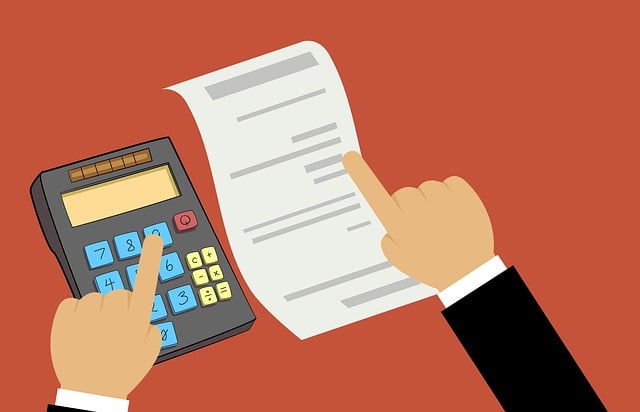Money-Saving Strategies Every Malaysian Should Know
In today’s fast-paced world, managing finances efficiently is important for maintaining a healthy lifestyle and ensuring a secure future. For Malaysians, the rising cost of living makes it essential to adopt money-saving strategies. In this article, we will outline several practical money-saving tips that can help Malaysians save money effectively, focusing on budgeting, reducing expenses, and investing wisely.
1. Creating a Realistic Budget
The most fundamental step in managing finances is creating a realistic and detailed budget. Start by tracking all sources of income and categorizing expenses into fixed and variable. Fixed expenses can include utilities, rent, and loan repayments. On the other hand, variable expenses may include food and entertainment. Use budgeting tools or apps to simplify your budgeting process. By identifying where your money goes each month, you can spot areas where you might be overspending and adjust accordingly.

2. Cutting Down on Non-Essential Expenses
Reducing non-essential expenses is a straightforward way to save money. If you are dining out frequently, consider minimizing it, as frequent meals at restaurants can be costly. Instead, plan your meals and cook at home, or choose local food stalls for affordable options. Besides, review all your subscription services, such as gym memberships, streaming, and magazines. Cancel those you rarely use or share accounts with family or friends to split the cost. Before making any offline purchase, compare prices online first using platforms like Lazada and Shopee. Take advantage of sales, discounts, and cashback offers to get the best deals.
3. Smart Grocery Shopping
Smart grocery shopping is essential for managing household expenses, especially for families. To save money, start by making a shopping list based on your weekly meal plan and stick to it. It can help to prevent impulse buying and reduce food waste. Purchase non-perishable items in bulk when they are on sale to save money in the long run. Additionally, shop at local wet markets, where fresh produce is often cheaper than in supermarkets.
4. Efficient Utility Usage
Reducing utility bills is another effective way to save money. For electricity, consider using energy-efficient appliances, such as LED light bulbs and air conditioners with inverter technology. Besides, practice good habits to switch off lights and fans when they are not in use. Additionally, unplug chargers and electronic devices when they are not needed. They can still draw power even when turned off if they are still connected to the sockets. If possible, investing in solar panels can significantly reduce your electricity costs in the long run and provide a sustainable energy source.
Water conservation is equally important. Fix any leaks promptly, as even small drips can waste a substantial amount of water over time. You can also collect rainwater for gardening purposes to reduce the use of treated water for outdoor activities. Regularly review your internet and phone plans to ensure you are getting the best deal. Always look for bundle deals that combine services at a lower cost. Besides, make sure to check for any promotions or discounts periodically that your current service provider may offer.
5. Community and Government Resources
Take advantage of community and government resources aimed at helping Malaysians manage their finances. Programs like AKPK (Agensi Kaunseling dan Pengurusan Kredit) offer free financial education and debt management services, providing valuable guidance on handling your finances effectively. Additionally, explore government subsidies and assistance programs for housing, education, and healthcare, which can significantly reduce your financial burden and help you save money.
6. Utilizing Technology
Utilizing technology can significantly enhance your ability to save money by providing various tools and services designed for financial efficiency. Finance apps are invaluable for tracking expenses and managing budgets. These apps can categorize your spending, alert you to unusual expenses, and help you visualize your financial habits. It is easier to identify areas where you can cut costs. Furthermore, setting financial goals within these apps can keep you motivated and on track to achieving your savings targets.
Online banking offers another layer of convenience and cost-saving opportunities. By using online banking services, you can monitor your accounts in real time. You can transfer funds and pay bills without the need to visit a physical branch. Additionally, e-wallets like Touch n Go and GrabPay often provide cashback, discounts, and reward points for everyday purchases. These e-wallets often partner with various merchants to offer exclusive deals and promotions, allowing you to save money on a wide range of products and services. By integrating these technological tools into your financial routine, you can streamline your money management and maximize your savings effortlessly.

7. Building an Emergency Fund
An emergency fund is essential for unexpected expenses such as medical bills, car repairs, or job loss. Aim to save at least three to six months’ worth of living expenses. Start small by setting aside a fixed amount each month and gradually increase it as your financial situation improves.
8. Debt Management
Debt management is a crucial aspect of maintaining financial health and achieving long-term financial stability. The first step in effective debt management is to prioritize paying off high-interest debts, such as credit card balances. These debts can quickly accumulate and become overwhelming due to high interest rates. By focusing on paying these off first, you reduce the amount of interest you pay over time, freeing up more money for savings and other financial goals.
Additionally, consider consolidating multiple debts into a single loan with a lower interest rate can simplify your finances and reduce your overall interest payments. This can be done through personal loans, balance transfer credit cards, or debt consolidation loans offered by banks and financial institutions. It is essential to always make payments on time to avoid late fees and penalties. These late fees can add up quickly and derail your debt repayment efforts. Setting up automatic payments or reminders can help ensure you never miss a due date. Effective debt management not only alleviates financial stress but also improves your credit score, opening up more opportunities for favorable financial products in the future.
9. Wise Investing
Investing is different from saving but it is essential for growing your wealth over time by making your money work for you. Consider contributing voluntarily to your EPF (Employees Provident Fund) account, which offers tax relief and ensures a comfortable retirement. Additionally, educating yourself about the stock market and investing in stocks or unit trusts, as these financial instruments can potentially yield substantial returns. Consulting with financial advisors can also provide valuable insights. Real estate is another viable option. Investing in affordable properties and renting out portions can generate passive income. Unlike saving, investing has the potential to significantly increase your wealth and secure your financial future.

10. Continuous Learning
Staying informed about financial matters is key to making smart money decisions. Attend workshops, read books, and follow financial blogs and podcasts to improve your financial literacy. Financial websites and blogs can also provide valuable information on personal finance tailored to Malaysians.
Conclusion
In conclusion, adopting smart money-saving strategies is paramount for Malaysians to secure their financial well-being amidst economic uncertainties. By implementing the practical tips mentioned above, individuals can pave the way for a stable and prosperous future. Through disciplined financial management and continuous learning, Malaysians can achieve their financial goals and navigate through any financial challenges that may arise.